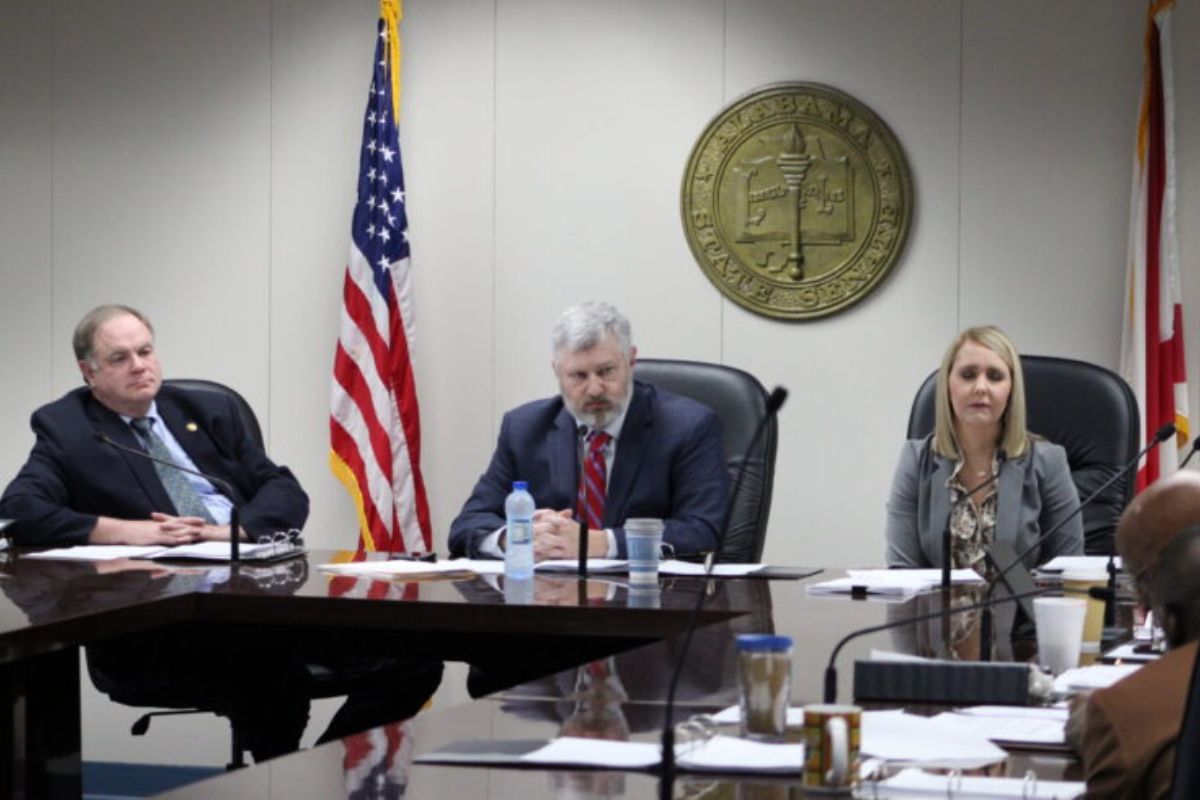Alabama Lawmakers Propose Controversial Bill: The proposed Alabama Senate Bill 3 has ignited a contentious debate surrounding the potential for state intervention in local policing matters. The power to appoint interim police chiefs in cities grappling with crime surges is at the heart of this controversial legislation, drawing both fierce opposition and staunch support. As the tug-of-war between centralized control and municipal autonomy unfolds, questions arise about the implications for community policing strategies, the delicate balance of power, and the broader implications for law enforcement governance.
Key Takeaways
- Alabama Senate Bill 3 grants state authority to appoint interim police chiefs.
- Opposed by local leaders like Montgomery Mayor Steven Reed.
- Alabama League of Municipalities stresses local governments’ autonomy.
- Concerns arise over potential inefficiencies and community disconnect.
- Supporters aim to address crime spikes and police staffing shortages.
Proposal and Legislative Details
The proposed Alabama bill, known as Senate Bill 3, aims to grant the governor or attorney general the authority to appoint interim police chiefs in cities facing notable increases in crime or decreases in law enforcement staffing levels. Sponsored by Sen. Will Barfoot and pre-filed for the 2025 legislative session, the bill seeks to address public safety concerns by allowing state intervention when local resources are insufficient.
Under the proposed legislation, the government could allocate state funds to compensate for a lack of municipal resources and appoint a police chief to mitigate the identified threat to public safety.
If Senate Bill 3 passes, the attorney general or governor would have the power to appoint an interim police chief after evaluating local crime statistics and ensuring that local law enforcement employment is considerably below historical averages. Collaboration with key local stakeholders, including the district attorney, sheriff, and victims of local crimes, would also be an important step in the decision-making process.
This proposed measure aims to provide a systematic approach to addressing law enforcement challenges in cities experiencing spikes in criminal activity or staffing shortages.
Opposition and Local Perspectives
Amidst the proposed Alabama bill granting state control over police chiefs, local leaders and officials are vehemently opposing the potential encroachment on municipal law enforcement autonomy.
Montgomery Mayor Steven Reed articulated his strong dissent by releasing a statement highlighting concerns about the erosion of municipal authority and the threat of interference with a city’s right to self-govern.
The Alabama League of Municipalities Executive Director, Greg Cochran, echoed these sentiments, emphasizing that decisions regarding local law enforcement should squarely rest with local governments.
The opposition from these influential figures underscores a broader sentiment among local communities that support the preservation of local control over policing matters. Critics argue that centralizing authority in the state government could lead to inefficiencies, lack of responsiveness to community needs, and a disconnect between law enforcement and the citizens they serve.
As the debate intensifies, the clash between state oversight and local autonomy is poised to be a focal point of contention in Alabama’s legislative landscape.
Context and Supporters’ Perspective
Within the intricate web of Alabama’s legislative landscape, the proposed bill advocating for state control over police chiefs has garnered notable support from Sen. Barfoot and Rep. Ingram, who emphasize the pressing need for addressing police staffing shortages and rising crime rates in municipalities like Montgomery.
Both lawmakers, residing near Montgomery, have expressed concerns about the challenges faced by local law enforcement agencies, citing the necessity for additional resources and support. Ingram clarified that the bill is not designed to wrest control from city authorities but rather to step in and assist when local capabilities prove essential.
Their perspective underscores a proactive approach to tackling the complex issues affecting law enforcement in Alabama. By providing a framework for state intervention in cases of need, the bill seeks to enhance public safety, improve working conditions for police officers, and address the escalating crime rates in urban areas.
Supporters believe that this collaborative effort between state and local entities is essential for bolstering law enforcement effectiveness and ensuring the well-being of communities across the state.
News in Brief
The proposed Senate Bill 3 in Alabama has sparked a heated debate between supporters advocating for state intervention in appointing interim police chiefs and opponents, including local leaders and organizations, who argue for the preservation of municipal autonomy.
The bill’s implications on public safety, law enforcement resources, and the balance between state control and local governance continue to be scrutinized as the legislative process unfolds.
ALSO READ: Alabama Parole Grant Rate Soars Amid Legal Challenges

